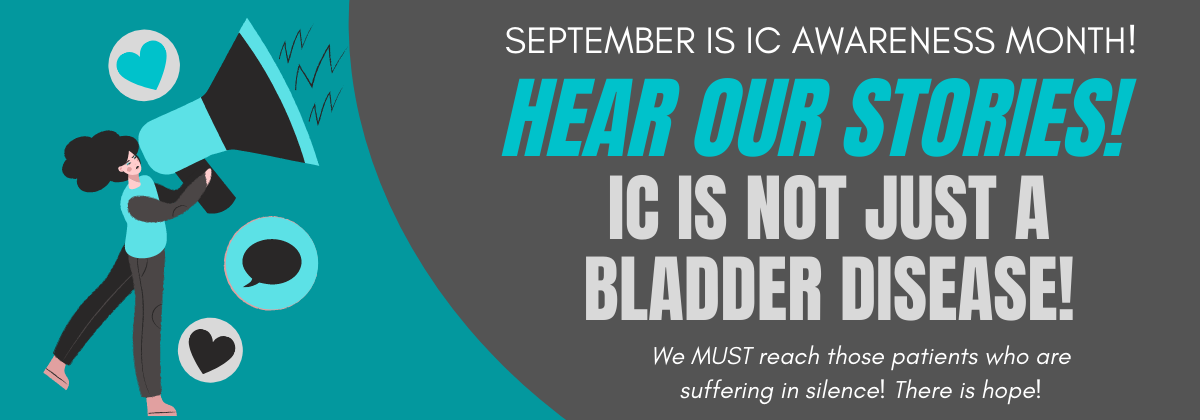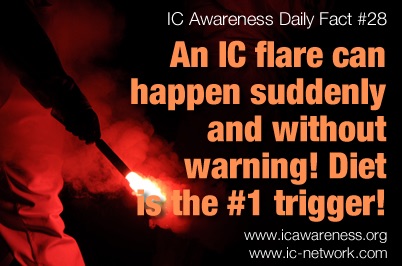Interstitial cystitis and bladder pain patients often experience sudden and unpredictable “flares” or worsening of their symptoms. There are a few distinct types of flares.
A “bladder wall” flare occurs when the bladder wall has been irritated, most often by eating or drinking an acidic or caffeinated food or beverage. While some patients report pain within 30 minutes of eating an offending food, most are felt at night, making sleep almost impossible. New research has emerged showing that some patients with bladder wall pain may have a candida infection while others report that their flares are intensified during HSV outbreaks.
A “pelvic floor” flare occurs when the pelvic floor muscles get tight or are traumatized, often during or after long car rides or intimacy.
A “stress” flare occurs during periods of intense physical or emotional stress. Pain that occur during periods of stress and anxiety may be intensified by the brain while pain that is accompanied by laughter can be minimized by the brain.
A “hormone driven” flare occurs when hormones peak during the menstrual cycle. Many women with IC report flares the day that they ovulate and/or a couple of days before the onset of their period. These flares are short-term and very predictable.
The good news is that many flares are preventable by following simple self-help strategies (i.e. diet modification, muscle relaxation).
Suggested Reading:
- ICN Flare Management Center
- Six reasons why you should not self medicate with antibiotics during flares
- Could IC flares because by candida?
- HSV Intensifies IC flares
Tik Tok
@icnetworkjill IC Awareness Daily Fact 28 – Flares happen at the worst of times but did you know there are different types of flares?? We offer hour by hour rescue plans. #ic #pelvicpain #icawareness ♬ original sound – IC Network
Past Images


